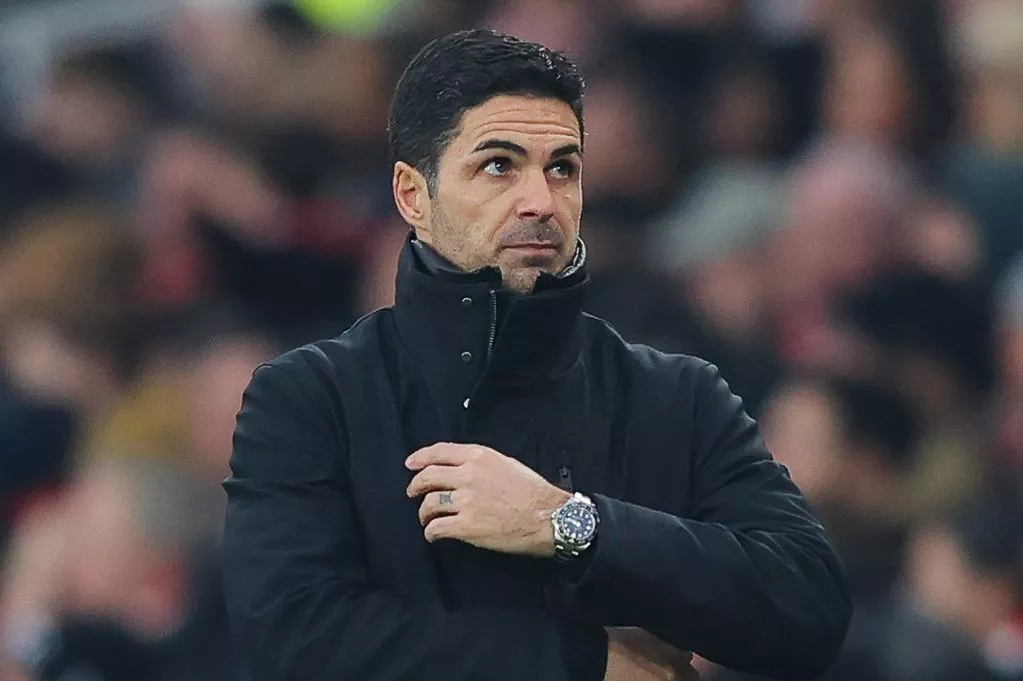Arsenal finds itself under intense scrutiny following the high-profile acquisition of Italian left-back Riccardo Calafiori for a staggering £42 million last summer.
The transfer, intended to bolster the Gunners’ defensive lineup, has sparked significant debate among fans and pundits alike, particularly after former midfielder Emmanuel Petit voiced strong criticism of the move.
Calafiori’s transfer from Bologna came on the back of impressive performances at Euro 2024, where his skills and potential caught the eye of Arsenal’s scouting network. Despite the hefty price tag, the Italian left-back has struggled with calf and knee injuries, limiting his impact on the pitch this season. To date, Calafiori has made 16 appearances for the Gunners, stepping in during periods when key players like Ben White and Takehiro Tomiyasu were sidelined due to injuries.
Emmanuel Petit, a respected voice in the football community, has openly questioned Arsenal’s transfer strategy, labeling the Calafiori signing as a “waste of money.” Petit argues that the substantial investment should have been directed towards addressing the team’s glaring need for a reliable striker. This sentiment gains weight in light of Arsenal’s recent FA Cup defeat to Manchester United, where the lack of effective goal-scoring options was glaringly evident.
Advertisement
Latest Press Conference
We’re on Social Media



In an interview with Casino Utan Spelpaus, Petit elaborated on his concerns, stating, “They should have addressed that [lack of strikers] in the last transfer window. They should have bought a striker.” He further criticized the club for reinforcing positions that were already sufficiently covered, pointing out that Arsenal had multiple players capable of playing left-back before Calafiori’s arrival. “I’m a big fan of Calafiori but when you look at it, when you look at the young guy Lewis-Skelly, he’s doing so well, and Zinchenko is on the bench most of the time, so they had that part of the pitch covered.”
Petit’s critique extends to Arsenal’s overall transfer priorities, emphasizing the importance of striking in the current competitive landscape. “I can understand that when you play every three days and you have to compete in every competition, that you need squad depth, but the striker position was a priority,” he remarked. This perspective highlights a potential misalignment between Arsenal’s transfer spending and the immediate needs of the squad.
The former Gunner’s skepticism is echoed by many who believe that the £42 million spent on Calafiori could have been better utilized in acquiring a top-tier striker to enhance Arsenal’s offensive capabilities. “I don’t know why Arsenal didn’t go for a proper striker last summer. Arsenal won’t be able to bring in the top, top quality striker they desire in January,” Petit continued, suggesting that the club’s current financial commitments may limit their options in the winter transfer window.
Petit Remains Pessimistic
Looking ahead, Petit remains pessimistic about Arsenal’s ability to rectify their striker dilemma in the short term. “They won’t be able to do it. I know they have some wingers and strikers on their shopping list, I know the fans are desperate to see someone coming in who can convert all the chances that the team creates, but it’s not going to happen in January. The January market is a very difficult market to shop in,” he stated. This outlook raises concerns about Arsenal’s offensive prospects for the remainder of the season.
Despite the criticism, Arsenal’s management, led by Mikel Arteta, remains active in the transfer market, albeit focusing on defensive reinforcements. The Gunners are reportedly nearing a deal for Real Sociedad’s defensive midfielder Martin Zubimendi, whose £51 million release clause underscores Arsenal’s commitment to strengthening their midfield. However, Zubimendi is not expected to join the club until the summer, leaving Arsenal’s immediate transfer needs unaddressed.
In addition to defensive signings, Arsenal faces challenges in their attacking lineup due to Gabriel Jesus’ injury. The Brazilian forward is expected to miss the rest of the season with a cruciate ligament injury, further exacerbating the team’s need for a reliable striker. This situation intensifies the criticism regarding the club’s transfer priorities and the substantial investment in Calafiori.
Arsenal’s Transfer Strategy
Arsenal’s transfer strategy has become a focal point of discussion, with many questioning the club’s long-term planning and immediate priorities. The decision to invest heavily in a left-back, while neglecting the striker position, suggests a possible misjudgment in assessing the squad’s needs. This critique is particularly poignant given the competitive nature of the Premier League, where depth and quality in all positions are crucial for success.
The Gunners’ performance this season has been a mixed bag, with moments of brilliance overshadowed by defensive vulnerabilities and a lack of consistent goal-scoring. Calafiori’s sporadic availability due to injuries has limited his ability to make a significant impact, leaving Arsenal to rely on other defenders to fill the gaps. This situation has only intensified the call for more strategic investment in key areas.
Emmanuel Petit’s Analysis
Emmanuel Petit’s analysis highlights a broader issue within Arsenal’s transfer dealings, suggesting that the club may need to reassess its approach to spending. By prioritizing depth in certain positions over addressing critical weaknesses, Arsenal risks underperforming in crucial areas that could determine their success in domestic and European competitions.
As the season progresses, the pressure mounts on Mikel Arteta and his management team to deliver results amidst these transfer-related controversies. The criticism surrounding the Calafiori signing adds to the growing list of challenges facing the club, with fans and pundits alike eager to see a more balanced and effective transfer strategy moving forward.
In conclusion, Arsenal’s £42 million investment in Riccardo Calafiori has sparked significant debate, with key figures like Emmanuel Petit questioning the club’s transfer priorities. As the team grapples with injuries and underperformance, the need for a reliable striker becomes increasingly urgent. Moving forward, Arsenal will need to navigate these challenges carefully, balancing immediate needs with long-term strategic planning to ensure sustained success on the pitch.
